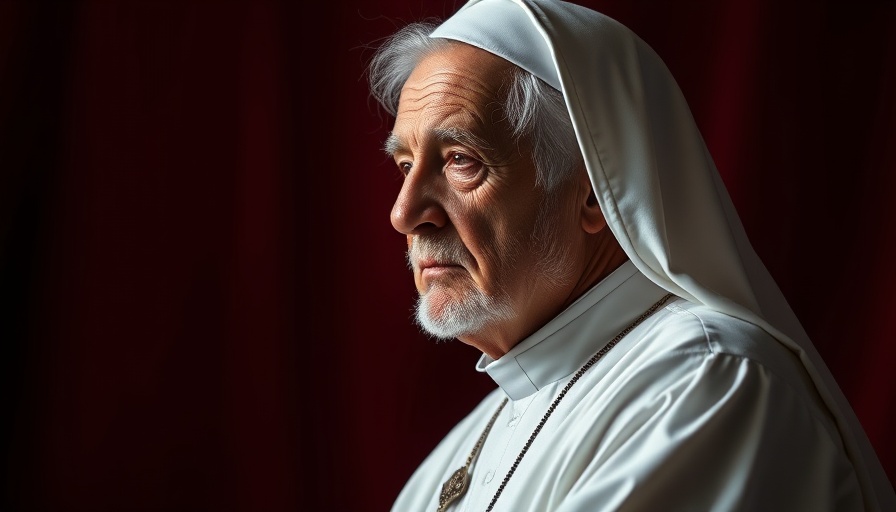
Pope Francis: A Legacy of Hope and Restraint
The death of Pope Francis at the age of 88 marks a poignant moment for the Catholic Church and its faithful around the globe. As a figure who stirred wide-ranging expectations among liberals and conservatives alike, his papacy often highlighted the tension between the desire for radical reform and the reality of institutional conservatism.
High Expectations Amidst Tradition
In the years leading up to his passing, Pope Francis was faced with requests for liberal reforms, such as the ordination of women and support for same-sex marriage. Many believed he would usher in a revolutionary era that redefined long-held Church doctrines. The 2019 synod, which addressed issues like the ordination of married men in remote parts of South America, sparked hopes that change was imminent. However, Francis chose cautious pragmatism over radical upheaval, opting to maintain the thousand-year-old tradition surrounding celibacy among priests.
The Delicate Dance of Doctrine and Debate
His papacy was characterized by a commitment to open dialogue rather than immediate transformation. For a deeply conservative institution, Francis's approach of inviting discussion was revolutionary in its own right, highlighting a nuanced understanding of the complexities of faith, culture, and modernity. While his supporters hoped for immediate changes, Francis’s stance was a reminder of the intricacies involved in leading a global religious body steeped in tradition.
A Reflection of Faith and Change
The duality of expectations from both ends of the Catholic spectrum underscores a critical element of Francis's influence: the tension between progressive desires and traditional values. For many liberals, his refusal to endorse drastic changes seemed a betrayal of their vision for the Church. Conservatives, on the other hand, feared that his empathetic approach would lead to doctrinal shifts that could jeopardize the Church’s stability. However, despite his refusal to alter foundational teachings, Francis still managed to encourage a more compassionate and inclusive dialogue within the Church.
The Future of the Catholic Church Post-Francis
As the Catholic Church reflects on Francis's legacy, the looming question is: what does the future hold? Will the next Pope build upon his dialogue-focused approach, or will we see a return to more stringent views? The Church is at a crossroads where it must reconcile the needs and expectations of a modern world with the foundational teachings of the faith.
Common Misconceptions About His Papacy
One common misconception about Pope Francis is that his papacy was uniformly radical or progressive. In truth, his tenure was more about fostering conversations around intricate issues without making sweeping changes. This cautious approach often left both sides feeling unfulfilled, yet it laid the groundwork for ongoing discussions about inclusivity and reform within the Church.
Conclusion: Embracing Dialogue for a Progressive Future
Ultimately, Pope Francis's style of leadership encourages us to embrace dialogue, a critical element that can lead to gradual change. For Catholics and observers alike, his legacy is a reminder that meaningful transformation in large institutions often comes not from radical upheaval, but from sustained conversations that honor tradition while opening doors to new ways of understanding faith.
 Add Row
Add Row  Add
Add 




 Add Row
Add Row  Add
Add 

Write A Comment